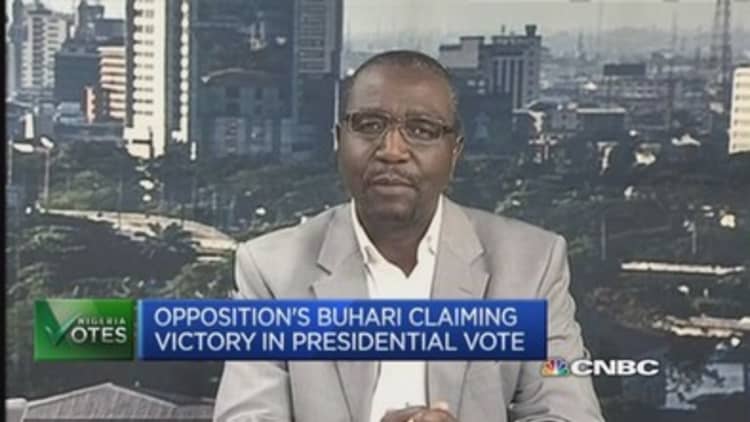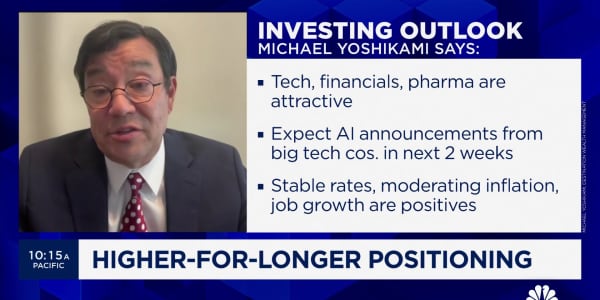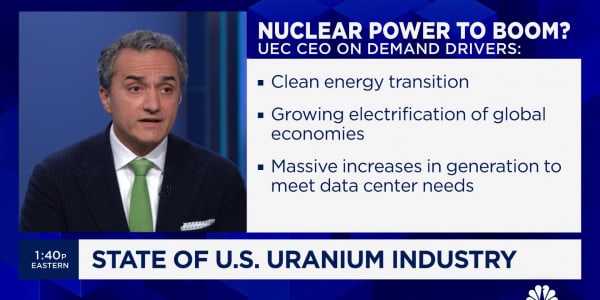Nigeria is resurgent—for now.
Optimism about the future of Africa's biggest economy hid a nadir in mid-February, when many Nigerian stocks were down double digits for 2015, and 10-year government bond yields spiked to more than 16 percent. Investors fretted over a potentially turbulent presidential election combined with low oil prices cutting into national income, a plummeting naira currency, and serious violence from Boko Haram religious extremists.
The calculus changed Tuesday when Nigeria—the world's seventh largest country by population and Africa's new economic powerhouse—succeeded in its first democratic transfer of power from one party to another.
Read More
Muhammadu Buhari, a former general, defeated incumbent president Goodluck Jonathan in largely peaceful voting. The successful election sent markets soaring: The Global X MSCI Nigeria ETF—which reflects locally traded shares like Nigerian Breweries, Guaranty Trust Bank, Nestle Nigeria and Dangote Cement—gained nearly 14 percent. Yields on 10-year bonds fell from nearly 15 percent to 13.8 percent April 1, according to FactSet data.
"The market has spoken," said Ashley Bendell, head of U.S. distribution for African Alliance, an investment bank with offices in 12 countries on the continent. "This was a momentous event for the country, and we can expect to see near term fund flows."
Read More
Nigerian leaders are certainly hoping the transition of power encourages more investment.
"The elections showed investors that the Nigerian government and people can abide by international norms," Larry Esin, an advisor to Buhari on foreign affairs, said in an email.
The question now is whether investors will keep adding to their positions.
"The optimism is definitely a result of the mitigation of near-term political risk," said Christine Phillpotts, a research analyst AllianceBernstein who focuses on African equities. "In the medium term, the market will pretty quickly focus back on the significant economic challenges the country still has."
Stocks have made back most of their losses this year, but they are still down from highs in March, 2008.

Tim Drinkall, who leads investing for Morgan Stanley Investment Management's Frontier Emerging Markets Portfolio, said he remains cautious on Nigeria despite what he said was a positive election.
"Regardless of the election result, the country faces tightening fiscal and monetary policy due to the collapse in oil prices and the lack of savings over the past decade," Drinkall noted in an email. "The elections are now past, but tough decisions on the economy remain ahead."
Oil is by far Nigeria's most important export and prices have fallen more than 50 percent in the past year.
Drinkall's Morgan Stanley fund portfolio includes three major Nigerian stocks as of Feb. 28: Guaranty Trust (a major African financial services player), Nigerian Breweries (a dominant regional beer maker owned by Heineken) and Zenith Bank (another large financial sector business).
While Nigeria is the largest economy in Africa, the country's financial markets are tiny. The market capitalization of the Nigerian Stock Exchange is about $60.9 billion; by comparison, it's $28 trillion for the New York Stock Exchange.
Read MorePrivate equity investors pile into Africa
Another major risk to Nigeria remains a religiously radical, bloody insurgency in the north of the country.
Terror attacks by Islamic extremist group Boko Haram have threatened the country's stability for years and Buhari—himself a Muslim from northern Nigeria—was elected in large part to deal with the issue. About 50 percent of Nigeria's nearly 178 million people are Muslim; some 40 percent are Christian.
A reminder of the dangers of terrorism on the continent occurred Thursday in Kenya, where gunmen from Islamist militant group al Shabaab stormed a university campus, killing dozens of students and staff, according to .







